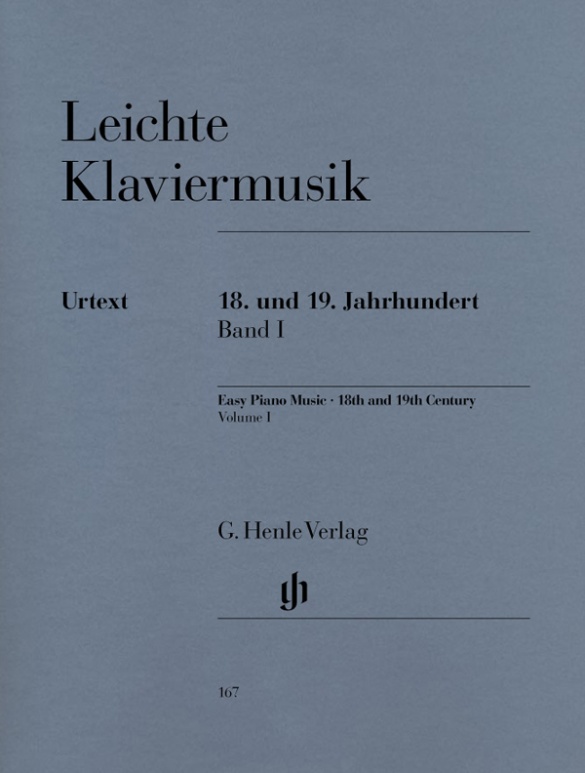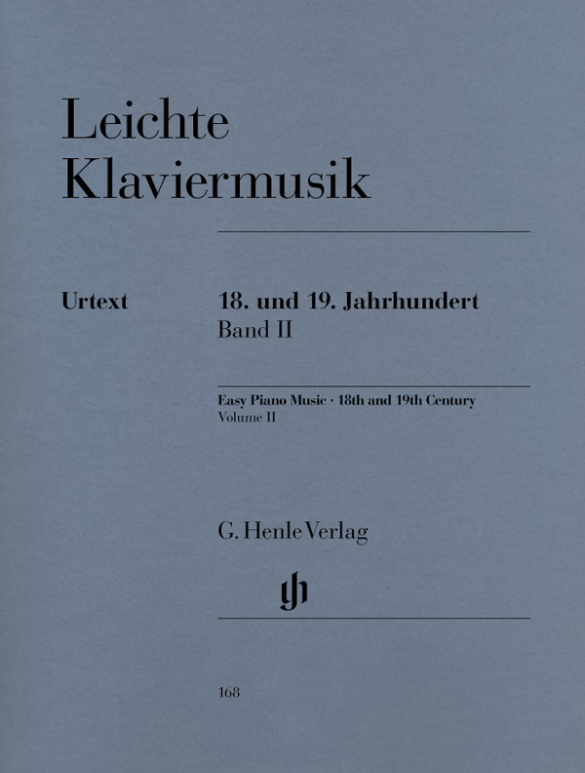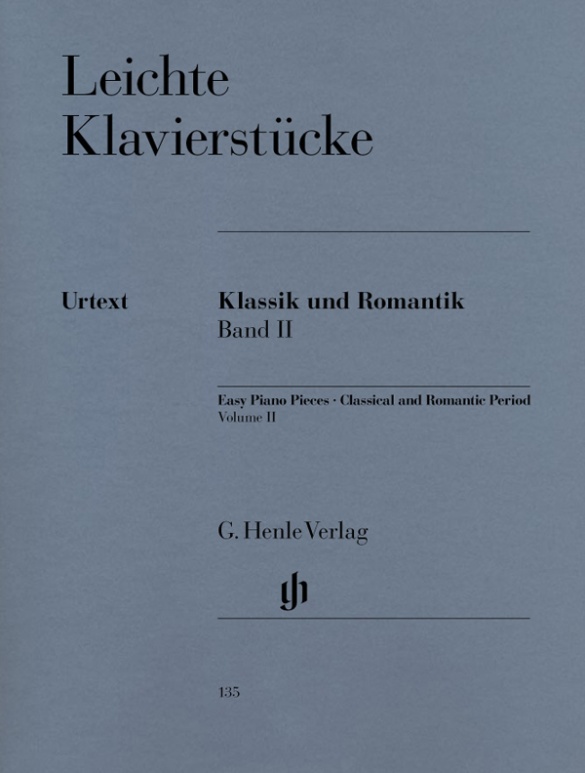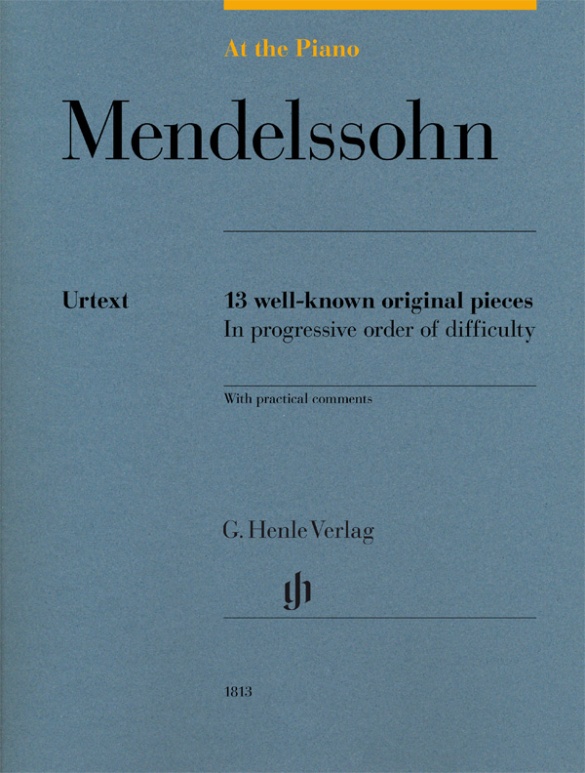

Felix Mendelssohn Bartholdy
At the Piano - 13 well-known original pieces
At the piano with Mendelssohn – everyone naturally thinks first of his wonderful Songs without Words, from which we have chosen a varied selection here. But there are other pieces in this volume that are no less fascinating, such as several of his enchanting children’s pieces, which belong alongside Robert Schumann’s Kinderszenen. In compositions such as the Prelude in f minor, we can also discern the love that Mendelssohn the German Romantic bore for the polyphony of J. S. Bach.
CONTENU/DÉTAILS
(Explanation)
CONCERNANT LE COMPOSITEUR
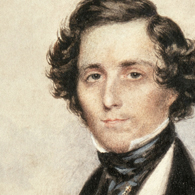
Felix Mendelssohn Bartholdy
Compositeur allemand, chef d’orchestre, pianiste et organiste qui de son vivant comptait parmi les plus importants compositeurs d’Europe. Déjà dans sa jeunesse il trouva un langage musical personnel: dans son œuvre qui aborde tous les genres se reflètent les tendances contradictoires de son temps, classicisme et romantisme. Ses efforts pour l’exécution des œuvres de Johann Sebastian Bach conduisirent de son vivant à la «redécouverte» du compositeur qui perdure sans faiblir jusqu’à nos jours. Son intense activité autour de Bach et son contrepoint a laissé de profondes traces dans sa technique de composition.
| 1809 | Né le 3 février à Hambourg dans une riche famille de banquiers. 1811 fuite avec les parents à Berlin. Premiers cours de musique auprès de sa mère. |
| 1819 | Devient l’élève de Carl Friedrich Zelter. |
| 1820 | Admission à la Singakademie de Berlin. |
| 1821–23 | 12 symphonies pour cordes. |
| 1825 | Octuor pour cordes en Mi bémol majeur op. 20. |
| 1826 | Ouverture du Songe d’une nuit d’été op. 21. |
| 1827 | Début de ses études à l’université de Berlin. |
| 1829 | Reprise de la Passion selon saint Matthieu de Bach à Berlin les 11 et 21 mars. Voyage en Angleterre et en Écosse. |
| 1829–30 | Symphonie «Réformation» en Ré mineur op. [107] avec intégration du choral «Ein feste Burg ist unser Gott». |
| 1830–32 | Grand voyage entre autres en Italie et en France. Concerto pour piano en Sol mineur op. 25, Ouverture en Si mineur «Les Hébrides ou La Grotte de Fingal» op. 26 (1829-1830). |
| 1833 | Chef de la musique à Düsseldorf. Symphonie italienne en La majeur [op. 90] (1830-33). |
| 1835 | Directeur des Concerts du Gewandhaus à Leipzig. |
| 1836 | Création de l’oratorio «Paulus. Oratorium nach Worten der heiligen Schrift» op. 36 à Düsseldorf. |
| 1838–44 | Concerto pour violon en Mi mineur op. 64. |
| 1840 | Composition du «Chant de louange. Symphonie-Cantate sur des paroles de l’Écriture sainte» op. 52. |
| 1841 | Berlin, au service du roi de Prusse. «17 Variations sérieuses» en Ré mineur op. 54 pour piano. |
| 1842 | Achèvement de la Symphonie n° 3 («Écossaise») en La mineur op. 56, qui commence avec des accents de lied. |
| 1843 | Musique pour le «Songe d’une nuit d’été» de Shakespeare op. 61. Directeur du Conservatoire de Leipzig qui vient d’être créé. |
| 1846 | Création à Birmingham de l’oratorio «Elias» op. 70. |
| 1847 | Quatuor à cordes en Fa mineur [op. 80]. Meurt le 4 novembre à Leipzig. |
About the Authors
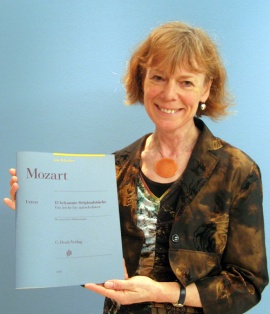
Sylvia Hewig-Tröscher (Editeur, Doigtés)
Sylvia Hewig-Tröscher studied piano at the Hochschule für Musik in Munich under Erik Then-Bergh and Hermann Reutter, as well as under Louis Hiltbrand at the Conservatoire de Musique in Geneva. 1977 she finished the „ Classe de Virtuosité“ in Geneva with the Premier Prix avec distinction and received the Henry Broliet prize as well as being awarded the GEDOK prize. Also organ studies under Lionel Rogg finishing with the „Diplome d’Orgue“. Masterclasses with George Halmos, Klaus Schilde, Karl Seemann and Wilhelm Kempff, followed, as well as with the cembalo player Li StadelmannIn. 1977 the piano trio Orfeo was established.
Since then, as a solo pianist and chamber musician, her concert activities have led her to Germany, Switzerland, France, Italy, Austria, America, Egypt, India, Korea, and Japan. The list of recordings includes Bayerischer Rundfunk and Südwestfunk Freiburg, Baden-Baden, record and CD recordings of (among others) seldom played works of the classical and romantic periods with Musica Bavarica. Further CD recordings including modern music and first performances with Calig, Symicon, Bayer Records, Arts Magnamedia, and Sony, also co-production of the Bayreischer Rundfunk and Deutscher Musikrat.
Masterclasses in Villa Marteau, Marktoberdorf, Hammelburg, Brixen, Castelnuovo di Garfagnana and New York. Today Sylvia Hewig-Tröscher works as a professor of piano and vice president of the Hochschule für Musik and Theater Munich.
Informations sur la sécurité du produit

G. Henle Verlag
Vous trouverez ici des informations sur le fabricant du produit.G. Henle Verlag e.K.
Forstenrieder Allee 122
81476 München
Allemagne
info@henle.de
www.henle.com
At The Piano is an excellent series for students and teachers. Those who fancy learning a major composer’s ‘piano favourites’ will really enjoy working their way through each book. G. Henle have combined a scrupulous ‘pure’ score with plenty of valuable information, offering a fascinating glimpse into the history and style of each composer.
Melanie Spanswick, 2018recommandations
autogenerated_cross_selling
Autres éditions de ce titre
Autres éditions de ce titre


